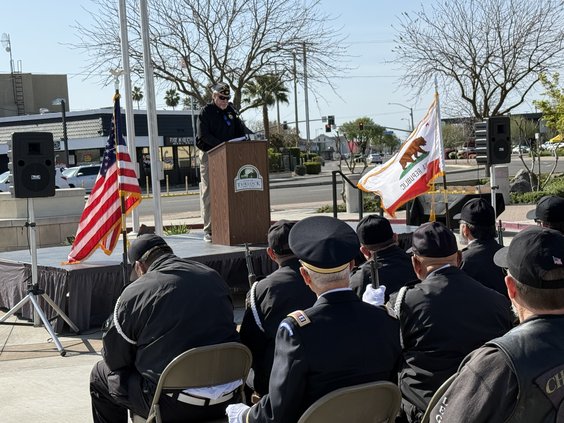Stanislaus County officials continue to ask for people to follow the statewide stay at home order as the number of COVID-19 cases grows locally, across the state and around the world.
The Stanislaus County Health Services Agency reported another positive case on Wednesday. The county has 12 confirmed cases and zero deaths as of noon on Wednesday.
The California Department of Public Health reported 2,724 positive cases in the state and 59 deaths.
Of those cases, 707 were community acquired cases and 1,828 cases acquired through person-to-person transmission, travel (including cruise ship passengers), repatriation, or under investigation. This number includes 35 healthcare workers, according to the CDPH.
Stanislaus County Sheriff Jeff Dirkse said the sheriff’s department has seen a sharp decrease in the number of people out and about in the community, but that stricter adherence is still needed. He said the department has received numerous comments and complaints about people gathering together, especially at parks.
“It’s okay to take your dog for a walk,” Dirkse said. “It’s okay to be with someone from your household. What’s not okay is to go play basketball in a group. That is not social distancing. Parents, we are also going to ask you to please talk to your kids about this. Many of the comments that we have are specifically related to youth and the fact that they seem to be the ones ignoring some of these social distancing guidelines.
Dirkse said there are also some non-essential businesses that remain open and are asking for the public’s help in bringing them into compliance.
“We have been in the middle of an education role and we are moving into an active enforcement role with those businesses and there’s multiple steps to take with this,” Dirkse said. “The first is direct contact, might just be a phone call to that business owner. We are going to follow up with some more severe measures. So, what we would ask that you do is share that information with your friends, families and with any of the communities that you are in. Let those businesses know that they need to comply with this order to prevent the spread of this disease.”
The sheriff’s department said they got around 50 reports of open non-essential businesses just in one day after posting on Facebook information to report these businesses. Dirkse said the department is forwarding the information to the appropriate state, city and county authorities and that these businesses could face regulatory consequences for not following the order.
“For example, a bar that remains open might lose its state liquor license if it does not close,” Dirkse wrote on his Facebook page.
People can report open non-essential businesses to HSA-COVID-19info@schsa.org.
California has secured a presidential Major Disaster Declaration to bolster the state’s COVID-19 emergency response efforts.
“The declaration will supplement our state’s comprehensive COVID-19 surge planning and make vital resources available,” said Gov. Gavin Newsom. “We appreciate the quick response and partnership from the White House.”
The Major Disaster Declaration makes federal funding available to state, tribal and local governments for emergency protective measures, including direct federal assistance and makes funding available for crisis counseling for impacted individuals.
Last week, the Governor signed emergency legislation allocating $1.1 billion toward the state’s response, issued a Stay at Home order, deployed the National Guard to help support food banks and signed an executive order to prepare the health care system for a possible surge in cases.
To reduce the risks of COVID-19 in correctional settings, Newsom issued an executive order Tuesday, temporarily halting the intake and/or transfer of inmates and youth into the state’s 35 prisons and four youth correctional facilities. Those inmates and youth will remain in county custody for the next 30 days. This period can be extended if needed.
“The State of California is responding in real time and fighting hard to deploy every resource to reduce the spread of COVID-19 and we are working with our public health experts, corrections system and our local sheriff’s departments to ensure proper protocols and procedures are in place to effectively limit risks in correctional facilities,” Newsom said.
Additionally, the executive order directs the Board of Parole Hearings to develop a process to conduct all scheduled parole suitability hearings through videoconferencing starting no later than April 13, and for the next 60 days. That process would facilitate remote participation of those typically in attendance, including staff, parole board members, victims, families and their representatives, inmates, attorneys, and others.
Locally, the Stanislaus County Public Defender’s Office is asking all their clients who are out of custody to authorize their attorneys to appear for them at their next hearing without the clients being present, for the limited purpose of continuing the scheduled hearing and then notifying them of their future hearing date.
“Legally, we cannot do this without an express request and a waiver signed by you,” the public defender’s office said to their clients in a released statement.
The public defender’s office said clients can make such a request by calling the office or by emailing them at pubdef977@stancounty.com. The lobby area is closed to members of the public through April 16, but the phones are staffed during regular business hours from 8 a.m. through 4:30 p.m. Monday through Friday. The main number is 209-525-4200.









